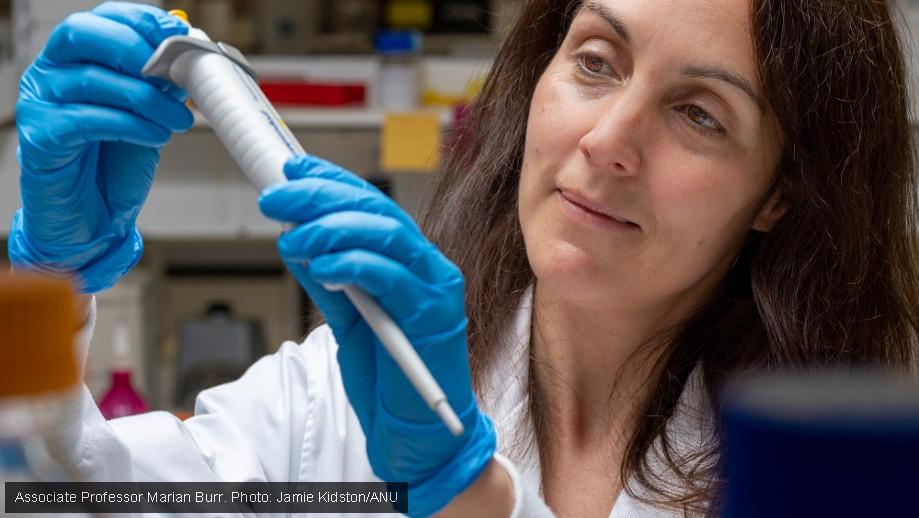博文
澳英美研究人员更接近于找到新的肺癌治疗方法
||
澳英美研究人员更接近于找到新的肺癌治疗方法
诸平
据澳大利亚国立大学(Australian National University简称ANU)2023年1月13日报道,澳大利亚国立大学 (ANU)的研究人员与英国及美国的研究人员合作,更接近于找到新的肺癌治疗方法(ANU, UK, and US researchers closer to finding new lung cancer treatments)。研究人员发现了一种名为Menin的蛋白质,它会导致癌细胞中特定基因的异常失活(abnormal deactivation)。
癌症的特征之一是基因的正常调节被打乱,这导致癌细胞的外观和行为与正常细胞不同。癌细胞可以关闭某些基因,使它们处于休眠状态。通过使特定的免疫基因失活,一些癌症能够逃避免疫系统的检测,基本上变得隐形。这使得癌症生长并变得更具侵略性。
研究人员认为,通过药物治疗靶向Menin蛋白,他们可以重新激活这些基因,使癌细胞再次可见,并允许免疫系统找到并摧毁它们。相关研究结果于2023年1月12日已经在《自然细胞生物学》(Nature Cell Biology)杂志网站发表——Christina E. Sparbier, Andrea Gillespie, Juliana Gomez, Nishi Kumari, Ali Motazedian, Kah Lok Chan, Charles C. Bell, Omer Gilan, Yih-Chih Chan, Sarah Popp, Daniel J. Gough, Melanie A. Eckersley-Maslin, Sarah-Jane Dawson, Paul J. Lehner, Kate D. Sutherland, Patricia Ernst, Gerard M. McGeehan, Enid Y. N. Lam, Marian L. Burr, Mark A. Dawson. Targeting Menin disrupts the KMT2A/B and polycomb balance to paradoxically activate bivalent genes. Nature Cell Biology, Published: 12 January 2023. DOI: 10.1038/s41556-022-01056-x. https://www.nature.com/articles/s41556-022-01056-x
此研究成果可能会为淋巴瘤(lymphoma)和肺癌(lung cancer)带来新的、更有效的治疗方法。
参与此项研究的有来自澳大利亚墨尔本的彼得·麦卡勒姆癌症中心(Peter MacCallum Cancer Centre, Melbourne, Victoria, Australia)、澳大利亚墨尔本大学(University of Melbourne, Victoria, Australia)、澳大利亚国立大学(ANU)、澳大利亚维多利亚皇家墨尔本医院(Royal Melbourne Hospital, Melbourne, Victoria, Australia)、澳大利亚莫纳什大学(Monash University, Melbourne, Victoria, Australia)、澳大利亚维多利亚州哈德逊医学研究所(Hudson Institute of Medical Research, Clayton, Victoria, Australia)、澳大利亚维多利亚州帕克维尔的沃尔特和伊丽莎豪医学研究所(Walter and Eliza Hall Institute of Medical Research, Parkville, Victoria, Australia)、澳大利亚堪培拉卫生服务(Canberra Health Services, Canberra, Australian Capital Territory, Australia);英国剑桥大学治疗免疫和传染病研究所,谢家辉生物医学中心,剑桥生物医学校区(Cambridge Institute of Therapeutic Immunology and Infectious Disease, Jeffrey Cheah Biomedical Centre, Cambridge Biomedical Campus, Cambridge, UK)、美国科罗拉多大学安舒茨医学校区(University of Colorado Anschutz Medical Campus, Aurora, CO, USA)以及美国沃尔瑟姆的辛德克斯制药公司(Syndax Pharmaceuticals, Waltham, MA, USA)的研究人员。
澳大利亚墨尔本的彼得·麦卡勒姆癌症中心的马克·道森教授(Professor Mark Dawson)说,这一发现有助于科学家更多地了解细胞的功能。“我们的研究发现对许多不同领域的研究都有重大影响,因为我们需要了解细胞是如何做出决定并改变它们的行为方式,以便找到治疗癌症的新方法。”
澳大利亚国立大学副教授、澳大利亚全国9名斯诺学者(Snow Fellow)的研究人员之一,也是上述研究成果的联合高级作者玛丽安·伯尔(Marian Burr)说,研究人员使用基因编辑技术从癌细胞中删除了Menin蛋白。
玛丽安·伯尔副教授说:“Menin先前已被证明可以激活基因。然而,我们的研究意外地发现,Menin的功能使这些基因处于不活跃的休眠状态。这意味着,通过删除Menin,我们可以打开免疫基因,这对帮助免疫系统检测和杀死癌细胞至关重要。重要的是,抑制Menin的特定药物已经开发出来,目前正在针对特定形式的白血病进行临床试验。我们的发现扩大了这些药物的潜在临床用途。我们已经证明,Menin抑制剂可以与其他现有的治疗方法联合使用,在实验室中增强对淋巴瘤和肺癌细胞的杀伤。我们相信这些药物对其他类型的癌症也有效。”
斯诺奖学金计划(Snow Fellowship program)在8年内奖励高达800万美元,给于最优秀和最聪明的职业早期研究人员(early-career researchers)到职业中期研究人员(mid-career researchers),旨在解决一些澳大利亚和全球人口面临的最大的健康和医疗挑战。玛丽安·伯尔副教授在2020年被授予斯诺奖学金(awarded her fellowship in 2020)。
本研究得斯诺医学研究基金会奖学金(Snow Medical Research Foundation Fellowship)、癌症研究英国临床科学家奖学金(Cancer Research UK Clinician Scientist Fellowship C53779/A20097)、澳大利亚国家健康与医学研究委员会(NHMRC)研究者基金(NHMRC Investigator Grant 1196598;Grant 1196749;Grant 1196755; grants 1164054, 2010275, 1085015, 1106444, 1128984)、维多利亚癌症委员会邓禄普爵士奖学金(Sir Edward Dunlop Fellowship, Cancer Council of Victoria)、霍华德·休斯医学研究所国际研究奖学金(Howard Hughes Medical Institute International Research Scholarship 55008729)、CSL百年纪念奖学金(CSL Centenary Fellowship)、彼得和朱莉·阿尔斯通百年纪念奖学金(Peter and Julie Alston Centenary fellowship)、维康信托基金首席研究奖学金(Wellcome Trust Principal Research Fellowship 101835/Z/13/Z)、彼得·麦卡勒姆研究生奖学金(Peter MacCallum Postgraduate Scholarship)、NHMRC研究生奖学金(NHMRC Postgraduate Scholarship)、维多利亚癌症协会(Victorian Cancer Agency简称VCA)、VCA职业中期奖学金(VCA Mid-Career Fellowship MCRF19033)的资助。
上述介绍,仅供参考。欲了解更多信息,敬请注意浏览原文或者相关报道。
Precise control of activating H3K4me3 and repressive H3K27me3 histone modifications at bivalent promoters is essential for normal development and frequently corrupted in cancer. By coupling a cell surface readout of bivalent MHC class I gene expression with whole-genome CRISPR–Cas9 screens, we identify specific roles for MTF2–PRC2.1, PCGF1–PRC1.1 and Menin–KMT2A/B complexes in maintaining bivalency. Genetic loss or pharmacological inhibition of Menin unexpectedly phenocopies the effects of polycomb disruption, resulting in derepression of bivalent genes in both cancer cells and pluripotent stem cells. While Menin and KMT2A/B contribute to H3K4me3 at active genes, a separate Menin-independent function of KMT2A/B maintains H3K4me3 and opposes polycomb-mediated repression at bivalent genes. Release of KMT2A from active genes following Menin targeting alters the balance of polycomb and KMT2A at bivalent genes, facilitating gene activation. This functional partitioning of Menin–KMT2A/B complex components reveals therapeutic opportunities that can be leveraged through inhibition of Menin.
https://blog.sciencenet.cn/blog-212210-1371973.html
上一篇:[转载]绍兴文理学院论文入选中国百篇最具影响国际学术论文
下一篇:迈向绿色未来的巨大飞跃:可持续氨和化肥生产的突破
